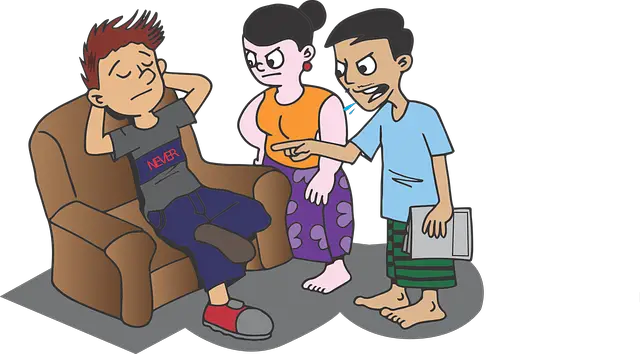Ignorant people are those who choose to remain uninformed about something, usually because it benefits them in some way. Naïve people, on the other hand, are simply unaware of something because they haven’t been exposed to it yet.
Ignorant
(Photo by Ante Hamersmit on Unsplash )

When we use the word ignorant, we are referring to a lack of knowledge or awareness. Ignorance can be blissful, like when you don’t know something because you haven’t been exposed to it yet. It can also be dangerous, like when you are unaware of a potentially harmful situation.
Naïve
(Photo by Monica Turlui)

Naivete, on the other hand, innocence or simplicity. It is often used to describe someone who trust others too easily or who does not have a lot of experience with the world. Naivete can make someone more vulnerable to being taken advantage of because they do not have the same level of sophistication as someone who is more worldly-wise.
Ignorant Vs. Naïve – Key Differences
Ignorant and naïve are two words that are often used interchangeably, but they have different meanings. Here are some key differences between the two:
Definition: Ignorant refers to a lack of knowledge or information about a particular subject or topic, while naïve refers to a lack of experience, wisdom, or sophistication.
Intent: Ignorance can be deliberate or unintentional, while naïveté is generally considered to be unintentional.
Connotation: Ignorance can carry a negative connotation, suggesting a lack of education or willful disregard for facts, while naïveté can carry a more neutral or even positive connotation, suggesting innocence or a lack of cynicism.
Scope: Ignorance is typically used to refer to a specific area of knowledge or expertise, while naïveté can refer to a broad range of situations where someone lacks experience or understanding.
Remedies: Ignorance can often be remedied through education and information, while naïveté may require life experience and maturity to overcome.
While ignorant and naïve are often used interchangeably, they have different meanings and connotations. Ignorance refers to a lack of knowledge or information, while naïveté refers to a lack of experience or sophistication.
Examples of naïveté
Here are some examples of naïveté:
- A young child who believes everything they are told by adults, without questioning or critical thinking.
- A person who is easily taken advantage of because they trust others too easily and do not understand when someone is trying to deceive them.
- A person who is overly optimistic and assumes that things will always work out for the best, without considering the potential risks or negative outcomes.
- A person who is unfamiliar with the customs and social norms of a different culture and unintentionally behaves in a way that is considered rude or offensive.
- A person who is new to a job or field and makes assumptions or decisions based on limited information, without considering the full scope of the situation.
In each of these examples, the individual’s lack of experience, wisdom, or sophistication has led them to behave in a way that may be considered naïve.
Examples of ignorance
Here are some examples of ignorance:
- A person who believes that climate change is a hoax, despite overwhelming scientific evidence to the contrary.
- A person who holds prejudices or stereotypes about a particular group of people, based on limited or inaccurate information.
- A person who is not familiar with the basic facts of a particular subject, such as history, science, or literature.
- A person who makes assumptions or decisions based on incomplete or inaccurate information, without seeking out additional sources or perspectives.
- A person who is not aware of their own biases or privileges, and how they may affect their perceptions of others.
In each of these examples, the individual’s lack of knowledge or information about a particular subject has led them to hold incorrect beliefs, make poor decisions, or perpetuate harmful stereotypes.
What are the signs of a naïve person?
Here are some signs that someone may be considered naïve:
- Trusting others too easily: A naïve person may be overly trusting of others, assuming that people always have good intentions and do not have ulterior motives.
- Lack of critical thinking: Naïve individuals may have a limited ability to think critically, question assumptions, or analyze situations from multiple perspectives.
- Overly optimistic: Naïve individuals may have a tendency to be overly optimistic and assume that things will always work out for the best, without considering potential risks or negative outcomes.
- Lack of worldly experience: Naïve individuals may lack experience in the real world and may have limited exposure to different cultures, lifestyles, or ways of thinking.
- Difficulty recognizing deception: Naïve individuals may have difficulty recognizing when someone is being deceptive or manipulative, and may be taken advantage of as a result.
- Idealistic beliefs: Naïve individuals may hold idealistic or utopian beliefs about the world or society, and may struggle to accept the realities of the world as they are.
It is important to note that being naïve is not necessarily a negative trait, and it is possible for people to learn and grow from their experiences. However, individuals who are overly naïve may be at risk of being taken advantage of, and may benefit from developing stronger critical thinking skills and increasing their exposure to different perspectives and experiences.
What are the signs of a ignorant person?
Here are some signs that someone may be considered ignorant:
- Lack of knowledge: An ignorant person may lack knowledge or information about a particular subject or topic, and may hold incorrect beliefs or make incorrect assumptions as a result.
- Refusal to learn: An ignorant person may refuse to learn or seek out new information, and may be resistant to ideas or perspectives that challenge their existing beliefs.
- Prejudice or bias: An ignorant person may hold prejudices or biases against particular groups of people, based on limited or inaccurate information.
- Closed-mindedness: An ignorant person may be closed-minded and unwilling to consider alternative perspectives or viewpoints.
- Overgeneralization: An ignorant person may make overgeneralizations about individuals or groups of people, based on limited or incomplete information.
- Lack of curiosity: An ignorant person may lack curiosity about the world and may not have a desire to learn or explore new ideas or perspectives.
It is important to note that ignorance is not necessarily a permanent or inherent trait, and individuals can take steps to increase their knowledge and understanding about the world around them. However, individuals who are overly ignorant may benefit from developing stronger critical thinking skills and increasing their exposure to different perspectives and experiences.
What are the repercussions of being ignorant?
Being ignorant can have a number of negative repercussions, both for the individual and for society as a whole. Here are some examples:
- Making poor decisions: Ignorance can lead to poor decision-making, as individuals may lack the information or knowledge needed to make informed choices.
- Causing harm to others: Ignorance can lead to harmful behaviors or actions towards others, as individuals may act on assumptions or prejudices that are not based in reality.
- Hindering personal growth: Ignorance can limit personal growth and development, as individuals may be resistant to learning or exploring new ideas or perspectives.
- Stifling progress: Ignorance can be a barrier to progress and innovation, as individuals or societies may resist change or new ideas due to a lack of understanding or fear of the unknown.
- Perpetuating stereotypes and prejudices: Ignorance can contribute to the perpetuation of stereotypes and prejudices, as individuals may hold inaccurate or incomplete beliefs about certain groups of people.
- Limiting opportunities: Ignorance can limit opportunities for individuals or societies, as a lack of knowledge or understanding can prevent them from taking advantage of potential opportunities or resources.
Overall, ignorance can have wide-ranging and negative consequences, both for individuals and for society as a whole. It is important to actively seek out knowledge and understanding in order to avoid the negative repercussions of ignorance.
How can I be kind but not naïve?
Being kind but not naïve involves finding a balance between being compassionate and empathetic towards others, while also being aware of potential risks and using good judgment in your interactions with others. Here are some tips on how to be kind but not naïve:
- Trust but verify: When dealing with others, give them the benefit of the doubt, but also verify information they provide and be cautious if something seems too good to be true.
- Set healthy boundaries: Establish clear boundaries in your relationships with others, and be assertive in enforcing them when necessary.
- Practice empathy: Try to put yourself in the other person’s shoes and understand their perspective, while also being aware of your own feelings and needs.
- Be aware of your biases: Recognize your own biases and prejudices, and actively work to challenge them and broaden your perspective.
- Use good judgment: Use your critical thinking skills to assess situations and make decisions based on evidence and facts, rather than assumptions or emotions.
- Learn from experience: Reflect on past experiences and learn from any mistakes or misjudgments you may have made, in order to improve your judgment and decision-making skills in the future.
By being kind but not naïve, you can maintain positive relationships with others while also protecting yourself from potential harm or exploitation.
Featured Image By – Mote Oo Education from Pixabay








